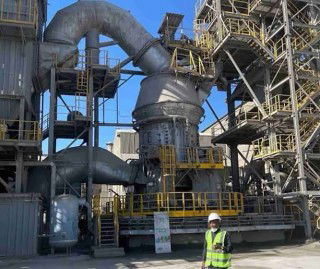The European Bank for Reconstruction and Development (EBRD) is providing a EUR25m loan to Turkey’s Çimsa to finance the cement company’s decarbonisation investment programme. The proceeds of the loan will fund the installation of a solar power plant, a waste heat recovery plant, a new silo and resource-efficiency process, and technology upgrades at the company’s Eskisehir plant.
The EBRD is committed to align its activities with the goals of the Paris Agreement on climate change. Within this direction, the loan follows the launch of the “low-carbon pathway” (LCP) initiative, led by the EBRD, which focuses on the decarbonisation of energy-intensive industries such as steel, cement, aluminium, and fertiliser. The cement-sector LCP recommends various actions for the decarbonisation of the sector, including a reduction in clinker use in cement production, carbon capture, utilisation and storage technologies, waste heat recovery, alternative fuel use, green energy, and process improvement.
Çimsa a leading player in producing and selling cement, clinker, ready-mix concrete and other construction materials, has a long-term strategy that combines global growth and green transition. The Science Based Targets Initiative recently validated the company’s commitments to carbon reduction.
Çimsa CEO, Umut Zenar, said, “As Çimsa, we are determined to advance our sustainability goals and take important steps in our energy efficiency and decarbonization efforts. This collaboration with the EBRD represents a significant milestone in our journey towards a greener future. This loan will not only support our investments in our solar energy and waste heat recovery facilities, but will also increase our operational efficiency. We are proud to be the first cement company in Turkey to receive this type of financing from the EBRD, reflecting our commitment to leading the industry in sustainability initiatives. We would like to thank the EBRD for their trust and support in this important initiative.”
